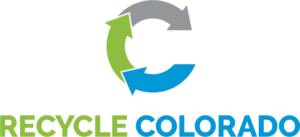Need Help Recycling in Colorado?
The Colorado Department of Public Health and Environment can help you find a recycler or drop off center near you, electronics recyclers, paint recycler, and hard to recycle materials recycler.
Paint Recycling
PaintCare offers drop-off sites throughout Colorado where the public can take unwanted paint for recycling. These sites are available to households, businesses, government agencies, and others with leftover paint. Enter your zip code, city and state, or street address to find the nearest, most convenient paint drop-off site to you.
Plastic Recycling
Looking to increase your recycling efforts? Bubble wrap, plastic wrap, zip bags, and so much more are all recyclable, but they can’t be recycled through standard curbside recycling. Instead, collect the materials you have and drop them off at participating retailers near you!
Common Recycling Questions
Get an in-depth look at the single-stream recycling process at the Boulder County Recycling Center. The 15-minute tour begins at the curbside recycling bin and follows the single-stream materials to the tipping floor of the Boulder County Recycling Center.
Check out the recyclable material sorting technology one of our Recycle Colorado members, AMP has developed for recycling centers. This video will walk you through why sorting technology is becoming a necessity in our recycling facilities.
Podcasts & Documentaries We Recommend
- Alie Ward's Ologies: Discard Anthropology (Garbage) with Dr. Robin Nagle
- Let's Talk Boulder: No Waste in the First Place episode
- K-12 Food Rescue: Food Waste Solution Leader Kathy Nguyen
Additional Resources
- Colorado recycling rates from the Colorado Department of Public Health and Environment
- Eco-Cycle's annual State of Recycling and Composting Report
- Integrated Solid Waste & Materials Management Plan
- Looking for more ways to go for Zero Waste this holiday season? Check out Eco-Cycle's Zero Waste Holiday Guide for environmentally-smart tips to have a less wasteful holiday season.
- Denver Reuse Business Directory
- EPA's Waste Reduction Model (WaRM) was created to help solid waste planners and organizations estimate the energy and greenhouse gas emissions reductions from several different waste management practices. Individual Waste Reduction (iWaRM) is the consumer version of WARM – it helps you understand the energy saved by recycling small quantities of common household products, rather than landfilling them.
- The Sustainable Materials Management Prioritization Tools from the EPA are lifecycle-based tools offer a starting place for governments, trade associations, NGOs, companies, small enterprises, and other organizations to establish priorities for environmental improvement, focus their limited financial and human resources where action could offer greater holistic benefit, and consider key industries for collaboration.
- More Jobs, Less Pollution: Growing the Recycling Economy in the U.S., produced by the Tellus Institute, provides strong evidence that an enhanced national recycling and composting strategy in the United States can significantly and sustainably address critical national priorities including climate change, lasting job creation, and improved health.
